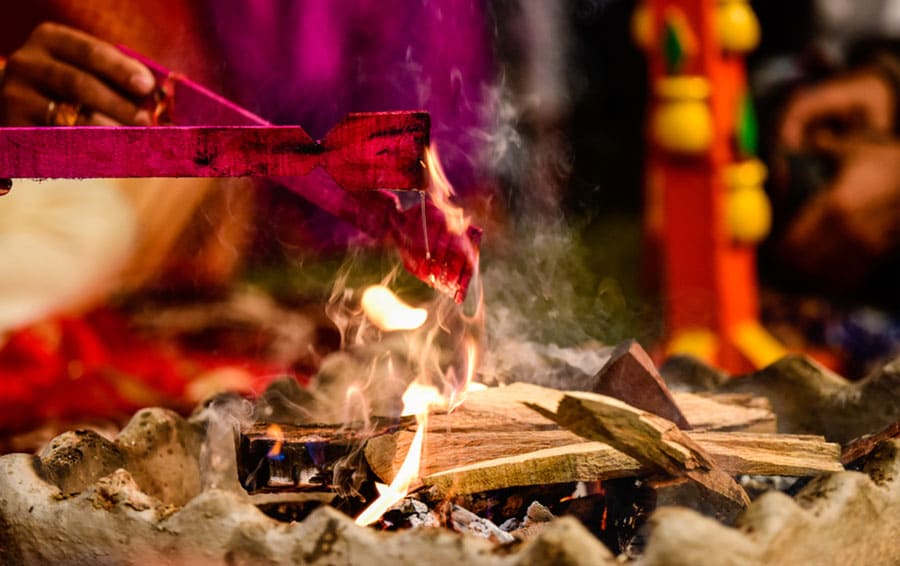
The Yagya or yajna (also spelled yagna), a sacred fire ritual in Hinduism, is a ceremony brimming with symbolism and tradition. One of the most common chants you'll hear during a yajna is "swaha." But have you ever stopped to wonder, why do we say swaha in yagya? This blog post will explore the meaning and significance behind this powerful mantra.
The word "swaha" originates from the Sanskrit root words "su" meaning "good" and "aha" meaning "to call upon" or "offering." Therefore, a literal translation of "swaha" would be "well offered" or "hail!"
In a yajna, devotees offer various oblations like clarified butter (ghee), grains, and herbs into the sacred fire. Chanting "swaha" while making the offering serves several purposes:
Completion of the Offering: It signifies the completion of the act of offering. Saying "swaha" marks the transition from the physical realm of the offering to the divine realm where it is received by the deities.
Invoking the Divine: The chant acts as a call to the specific deity being worshipped during the yagya. It invites the deity to accept the offering and partake in the sacrificial fire.
Expression of Reverence: Utterance of "swaha" imbues the offering with reverence and devotion. It conveys the sincerity of the yajna performer and their dedication to the divine.

The significance of swaha goes beyond its literal meaning. It represents the surrender of the ego and the offering of our actions and desires to a higher power. By chanting "swaha," we acknowledge that everything we have comes from the divine, and we are simply returning a portion of it with gratitude.
Hinduism is a rich tapestry of traditions and interpretations. There are various schools of thought regarding the meaning of "swaha." Here are a few:
Swaha as Agni's Consort: According to some legends, Swaha is personified as the wife of Agni, the god of fire. Chanting "swaha" is seen as an offering made to Agni, who carries the oblations to the respective deities.
Swaha as the Offering Itself: In some interpretations, "swaha" is not just a chant but represents the offering itself. The sound "swaha" is believed to have a specific energy vibration that enhances the potency of the offering.
Saying "swaha" in a yajna is more than just a tradition; it's a powerful act with spiritual significance. It signifies the completion of the offering, invokes the divine, expresses reverence, and symbolizes the surrender of the ego. Understanding the meaning and purpose of "swaha" deepens our understanding of the yajna ceremony and its role in connecting us with the divine.
Yes, "swaha" comes from Sanskrit and literally translates to "well offered" or "hail!"
Chanting "swaha" signifies the completion of the offering, invokes the deity, and expresses reverence.
Yes, some view "swaha" as Agni's consort, while others believe it represents the offering itself.
It's generally recommended to have a qualified priest perform a yajna due to the complexity of the rituals. However, you can participate in community yajnas or perform simpler fire rituals at home with proper guidance.
Numerous books, websites, and knowledgeable priests can provide in-depth information about yajnas and their significance.
For more Interesting topics follow us on Instagram
Author :